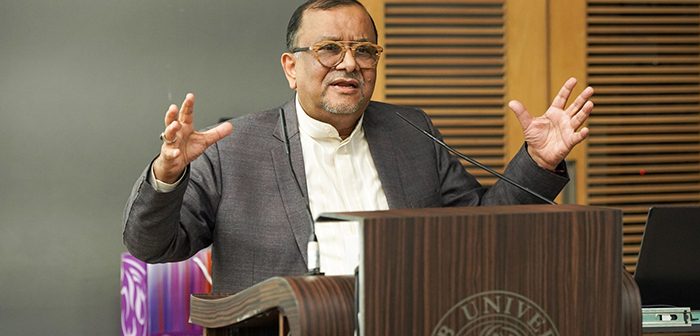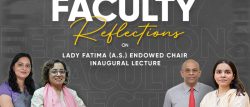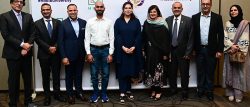Dr. Hasnain Walji delivered the inaugural lecture of the series, aiming to underscore the vital role of higher education in shaping sustainable futures by reshaping philanthropy.
On January 17, 2024, Habib University, the best university in Pakistan, introduced its new lecture series, “Reshaping Philanthropy in the Islamic World.” Dr. Hasnain Walji, the Executive Director of United Global Initiative, delivered the inaugural lecture titled ‘Universities as Nurseries of Ethical Leadership and Social Responsibility for the Advancement of Muslim Societies.’ The following are the themes addressed by Dr. Hasnain Walji during his talk.
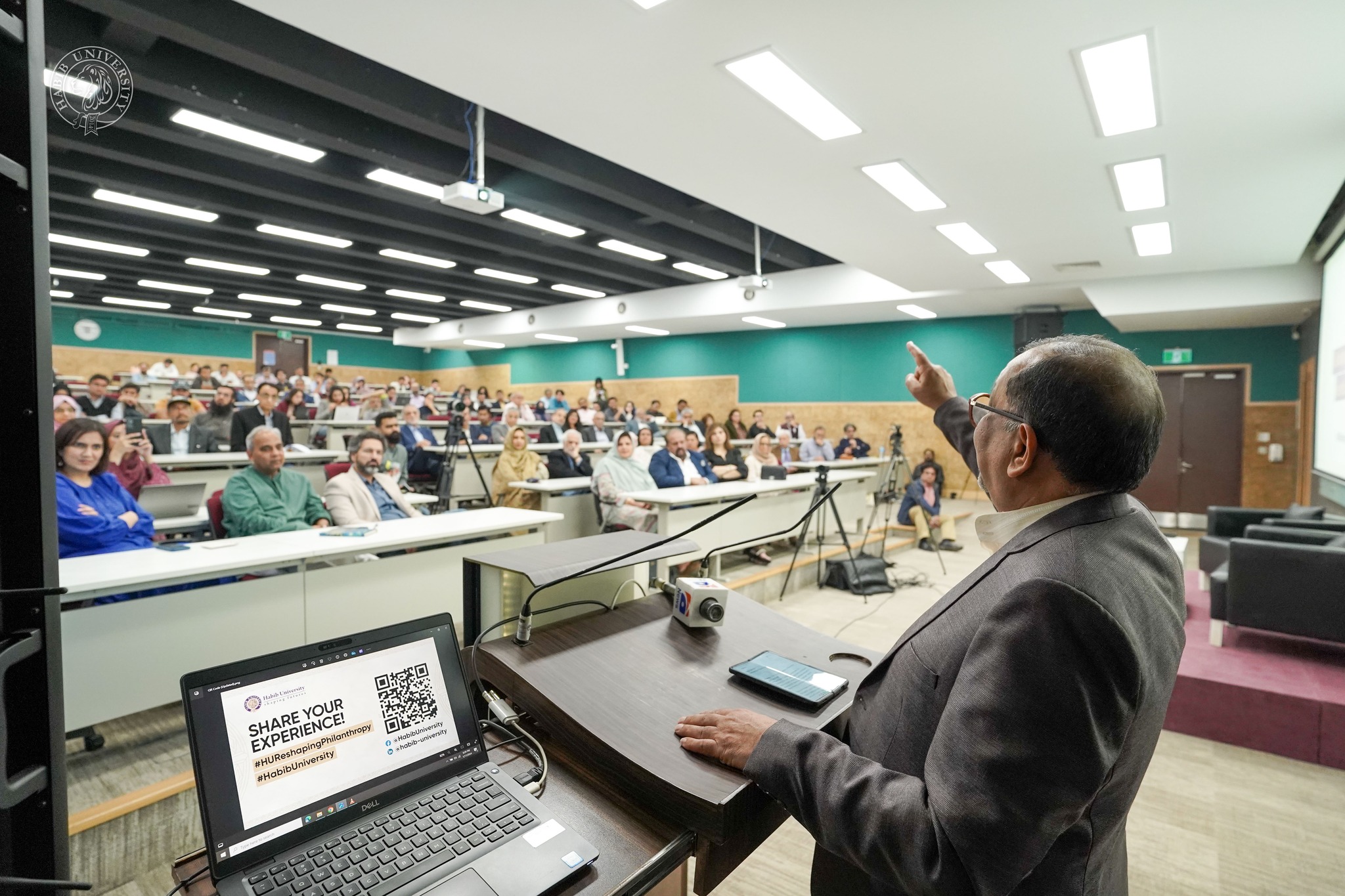
Reshaping Philanthropy is Reshaping Mindsets
Dr. Hasnain Walji began his lecture by discussing the concept of reshaping philanthropy, citing the Holy Quran’s verses as the ultimate directive: “Never will you attain the good (reward) until you spend (in the way of Allah) from which you love. And whatever you spend – indeed, Allah (SWT) is Knowing of it.” Emphasizing this verse as the basis for philanthropy, he asserted that it is a mindset-shaping exercise, not merely about charity but about empowering fellow beings. Dr. Walji stressed, “It’s not a matter of a handout or charity; it’s a question of empowering our fellow creatures. When you empower recipients, they can become givers tomorrow.”
In his discourse, Dr. Walji expressed his confidence in the student body of Habib University, labeling them as future leaders who will redefine philanthropy. He commended the institution for nurturing minds that will not only give their best but also translate their learning into global citizenship, leaving a legacy.
Immaterial Value of Knowledge & Wisdom
Dr. Walji elaborated on the immaterial value of knowledge, recalling his insights from Alvin Toffler’s book, ‘Powershift: Knowledge, Wealth, and Violence at the Edge of the 21st Century.’ He highlighted the shift in power from machinery to information, emphasizing that knowledge is a resource that multiplies when shared. “The more you sell, the more you give, the more you still have; it’s an inventory that does not diminish even when you sell it or when you give it… the information organized becomes knowledge and the knowledge becomes wisdom.”
Role of Universities as Sites of Transformation
Dr. Walji emphasized the pivotal role of universities as places of transformation, differentiating it from mere change. He stated, “There is a difference between change and transformation. Change is what you can go back to. But just as a caterpillar emerges out of a cocoon and a butterfly emerges, it cannot go back. This (Habib University) is going to be a place for a pivotal transformation equipping our future leaders not just for the marketplace or government, but to ensure that students and those who have learned from here can deal with life’s complex, ethical challenges.”
Illustrating the influence of institutions, Dr. Walji referenced the story of South African bishop and theologian Desmond Tutu, highlighting the power of education in averting major catastrophes.
“So, when the philanthropists of our community,” he explained, “think in terms of what is a value, what is impact, they need to understand one phrase: if you think education is expensive, try ignorance. The impact of ignorance is far more expensive than every penny that we’ll invest in (higher) education.”
The Importance of Ethos in the Pursuit of Learning, Service & Personal Development
Dr. Hasnain Walji stressed the focus of the institution’s ethos which should be deeply ingrained in the fabric of an institution, such as Habib University’s Yohsin philosophy, he said. “The whole idea of Yohsin (and) the whole idea of taking that inspiration from the great concept of Ihsan, is something that sets an institution like this apart; to say that there’s a bigger meaning to whatever we do. Therefore, this is an environment that becomes a beacon for ethical learning. This is the essence we should be looking at.” Quoting Habib’s Yohsin philosophy, he praised the institution for coining a unique mantra, “as I understand it, Yohsin is a lens with which we need to view education, reminding us that the ultimate goal is not just an accumulation of knowledge but a harmonious integration of personal and global development.”
Addressing the students, he conveyed, “Your journey in this university is not just skill acquisition, it’s deeper – it’s a much more transformative experience. Every class, every project, and every late-night study session is a step towards intertwining your abilities with a strong ethical foundation. Remember leaders, your skills may define what you can do, but your ethics will define who you are.”
Virtues in Philanthropy and Education
Dr. Walji introduced three pillars grounding philanthropy, knowledge, and societal advancement: empathy, compassion, and integrity. He stressed the essential role of these virtues in addressing global challenges. Referring to the Islamic teaching of Ihsan, he emphasized the higher level of spirituality represented by doing beautiful things. “We’re not just talking about acquiring knowledge in this beautiful environment but a place where we will make the leaders of tomorrow,” he added.
In his closing remarks, Dr. Walji commended Habib University as a changemaker and urged the reinforcement of the message of giving in higher education through the ‘Reshaping Philanthropy in the Islamic World’ lecture series.
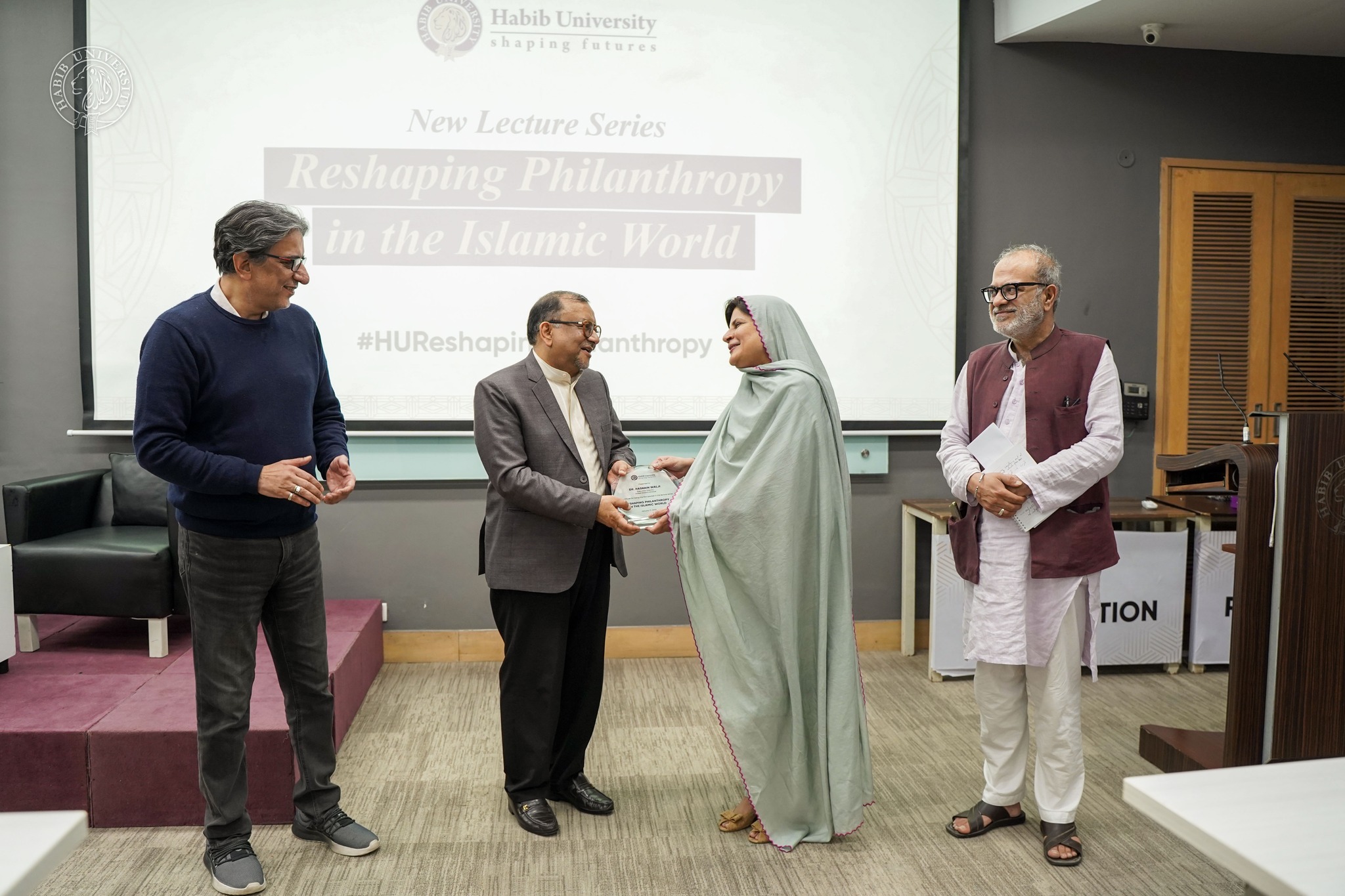
Dr. Hasnain Walji was presented with a memento as a token of gratitude by Ms. Marzia Habib, a member of the Habib Family.

